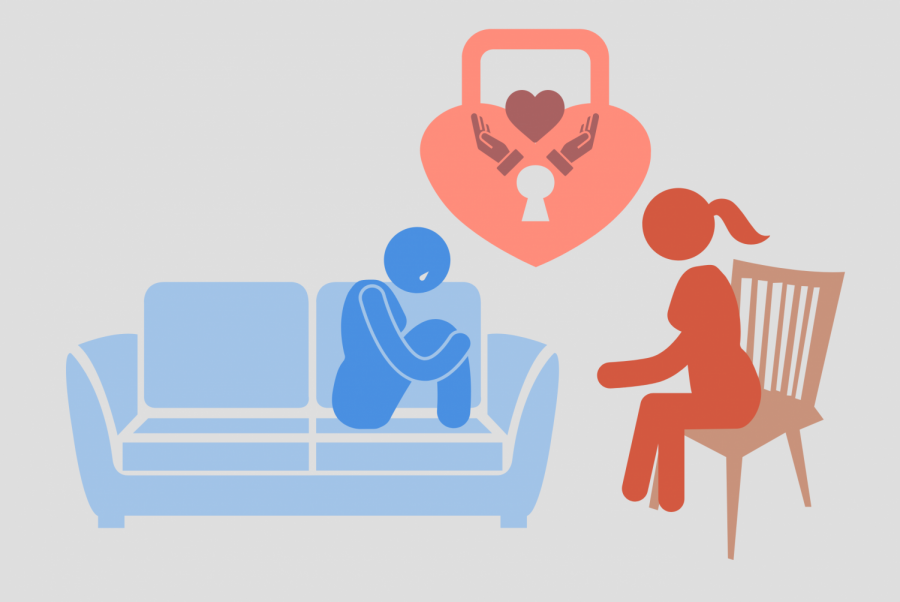MCPS: Allow students to exempt themselves from triggering conversations in the classroom
Students should have the opportunity to excuse themselves and talk to a counselor when triggering topics arise during class.
April 3, 2021
One student’s name has been changed for anonymity.
In her elementary school science class, Sara stepped up to the whiteboard, prepared to jot down her weight in front of her peers. The activity was meant to compare a girl’s weight to a boy’s weight. Sara knew the teacher thought she was bigger than the other kids — she felt targeted when the teacher singled her out. This experience ultimately led to insecurity and body image concerns.
Sensitive lessons or class discussions can trigger students with personal connections to topics being discussed, leading to feelings of strong anxiety, panic and discomfort in the classroom.
In order to ensure an accepting classroom environment, MCPS should ensure that students receive emotional support and require warnings before potentially triggering lessons.
One way teachers can address these situations is by promoting a greater sense of comfort for students. The manner in which teachers utilize language and tone in their curriculum can help foster positive experiences.
Jamie Gordon, a senior who identifies as gay, remembers an uncomfortable experience when a teacher, who had not been informed by Gordon of his sexuality, went out of the way to ask him about his knowledge of gay rights.
“My teacher was expecting me to kind of be a encyclopedia for the gay rights movement,” Gordon said. “It was kind of just like, well, ‘what is going on?’”
Students can often feel uncomfortable when their classmates are making light of personal issues. Teachers’ apathy to unfiltered discussions can create a hostile learning environment.
“It’s hard when you’re sitting in a classroom and people are basically telling you that you don’t deserve to have rights, or that you don’t deserve to be treated equally,” Gordon said. “Teachers need to understand what is and what isn’t acceptable. If there’s a teacher who isn’t going to be good when they’re teaching this, another teacher should step in.”
Senior Lily Muchimba went through a similarly distressing experience in her American history class, when her teacher failed to warn students before showing images of Black enslavement and other vicious injustices.
“I just couldn’t hold back the tears, so my friend had to help me leave class,” Muchimba said. “My teacher was confused as to why I was crying, even though what was happening on the screen was so brutal that I couldn’t even watch. Even though it was insignificant to other people, it was still very triggering for me.”
In order to prevent scenarios like Muchimba’s, MCPS should ensure that all schools have counselors who can discuss these issues with students. Additionally, establishing small focus groups of like-minded students could further strengthen a sense of community and support. Providing a space where students’ stories can be heard will help create meaningful progression.
In especially triggering circumstances, teachers should always present students with the option to leave. This would not be at a teacher’s discretion, but instead, any lesson identified as potentially triggering should ideally come with guidelines from the country. Having a clear option to step away from an anxiety-inducing classroom experience will protect students’ mental health.
Opponents may argue that giving students the option to exempt themselves from class instruction, or even providing a trigger warning to sensitive material, shields students from important information.
However, excusing yourself from a triggering situation is not an excuse to remain unaware of the issues; schools will encourage students to speak with a guidance counselor when out of the classroom. MCPS would enact policies which provide schools with support systems, involving both students and counselors who can discuss these issues in a constructive format.
Creating resources for students as substitutes for these lessons is non-negotiable. Even if the county reviews classroom material and trains teachers, it’s impossible to predict how a student might react to deeply personal class content. Curbing potential in-class triggering exercises shouldn’t be unrealistic.
“In today’s day and age with people being more open about their mental health, I think all teachers should really be trained on what might be sensitive information,” Sara said. “It’s going to be really hard for some people to focus on what’s in class if they’re triggered.”











